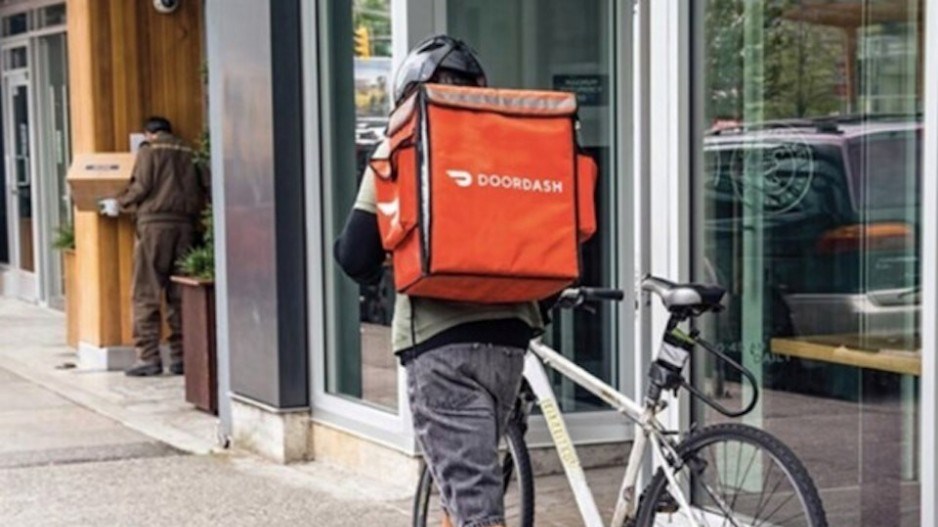A new DoorDash-funded survey has found sizable opposition to the B.C. government's plan to raise the minimum wage to $20.10 for food-delivery drivers, ride-hailing drivers and other gig workers.
Premier David Eby's government in December passed Bill 48, which would create the special minimum wage for the drivers, change the Workers Compensation Act and the Employment Standards Act to prohibit companies such as DoorDash and Uber Eats from withholding tips and to require that the drivers be covered by workers' compensation.
It has not yet been determined when the changes will come into effect. The minimum wage is to remain at $16.75 for other workers.
Pollara's survey found that while 60 per cent of respondents supported giving app-based workers the same $16.75 minimum wage as other workers, for active hours worked, 23 per cent were opposed. Others did not know.
Support then fell considerably for the slated $20.10 minimum wage for app-based workers: 39 per cent in support, while 46 per cent were opposed. Others did not know. Among those who felt strongly, 17 per cent were strongly in support while 25 per cent were strongly in opposition, the survey found.
The polling firm surveyed 2,000 British Columbian adults between Jan. 8 and Jan. 16. with the results weighted by region, gender and age within B.C., using the most recent census figures.
"Most of the measures that are being proposed: around workers keeping their tips, more transparency around communications with employers and being informed about what's going to be involved in any kind of pick-up, or accepting – these are all things that have two-thirds to up to 84-per-cent, in some cases, support," Pollara's chief strategy officer, Dan Arnold, told BIV.
"Questions around minimum wage are more contentious."
Arnold said that when respondents were provided with arguments for and against creating a special class of minimum wage for gig workers, support for that new class of minimum wage fell.
The argument for having the higher minimum wage for those workers was that the gig workers are only paid for time spent driving passengers or delivering meals, and that they are not paid for time spent waiting for the next customer. The argument against having the higher minimum wage was that the workers are free to do other tasks between service calls, Arnold said.
"You've got, by a two-to-one ratio, people more opposed to a special minimum wage than supportive: 55 per cent saying that they don't need a special minimum wage; 28 per cent saying they do, after that context is added," he said.



